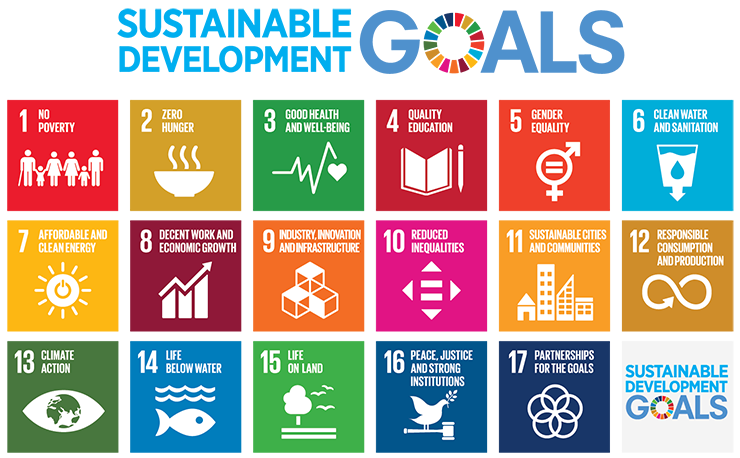
Double Materiality and the SDGs
PwC NL is not yet mandated to comply with the CSRD, however we have chosen to practice what we preach to our clients by extending our focus on the SDGs to a full Double Materiality Assessment (DMA) in already in 2024.
As a result of the material topics from our DMA, we have decided to replace the prioritization of the SDGs with the prioritization of the material topics within our strategy. Instead of setting focus SDGs and determining ambitions and thresholds as well as actions and targets on focus SDGs we now prioritze material topics. We continously leverage the synergy between the SDGs and ESRS target setting to enhance our sustainability efforts, focusing on creating positive economic, environmental, and societal impacts.
For our DMA itself, we use our seven-step methodology to determine the materiality of sustainability matters from two different perspectives. Namely, the impact we have on people and the environment as well as the risks and opportunities that affect us as a result of sustainability related developments. Our objective is to ensure transparent reporting based on the identified material topics, enabling us to effectively allocate our time and resources to the most important sustainability matters.
The Sustainable Development Goals, launched by the UN in 2015, address the world's most pressing problems, such as hunger, inequality and climate change. The 17 goals explicitly call on the business community and other organisations to contribute. We are happy to do so.
The SDGs are both in line with our purpose to solve important problems as well as supportive of our ambition to become a purpose-led and values-driven organisation. We want to contribute to achieving the SDGs.
SDG Dome

SDG focus
While we expanded our focus from SDG to the material topics, we still link our material topics to the SDGs and we demonstrate yearly in our annual report how our actions align with the SDG targets that have been set on the focus SDGs shown below. Our latest SDG impact measurement shows that nine SDGs are relevant to our business operations and services. We can make the biggest difference to four of them, which are our focus SDGs:
SDG 5: Gender equality
SDG 8: Decent work and economic growth
SDG 10: Reduced inequalities
SDG 13: Climate action
Ambitions, targets and impact measurement
We link the SDGs to our policies and activities. To minimise our negative impact and maximise our positive impact, we define ambitions and targets for our focus SDGs. In addition, we measure the positive and negative impact that our business operations and services have on achieving the SDGs and report on the outcomes in our annual report.
Read more about all six steps of our method of SDG impact measurement.
| SDG | Ambition for 2030 | Target for 2026 |
 |
Achieve gender balance and equality of opportunity | Yearly target of 35/30% intake and 35/25% promotion of female directors and partners, respectively. |
 |
Achieve sustainable growth within the boundaries of social and environmental systems | We will measure and report insights of our impact through our client work. This will also be part of implementing CSRD for our own organisation. |
 |
Achieve an inclusive and diverse culture and equality of opportunity irrespective of age, disability, cultural background, sexual orientation or other status | Yearly target of 15% intake and 15% promotion of non-western origin directors and partners. |
 |
Achieve a positive environmental impact across our value chain |
|

Helping clients, conducting research and sharing knowledge
We use our expertise in the field of sustainable development to help our clients contribute to a sustainable future. Achieving the SDGs is possible only if we work together and take responsibility for the bigger picture. That is why we conduct research and share our knowledge. We do this through, for example, partnerships and alliances.
Related content

Contact us

Wineke Ploos van Amstel - Haagsma
Chief Sustainability Officer, PwC Netherlands
Tel: +31 (0)65 170 13 44















